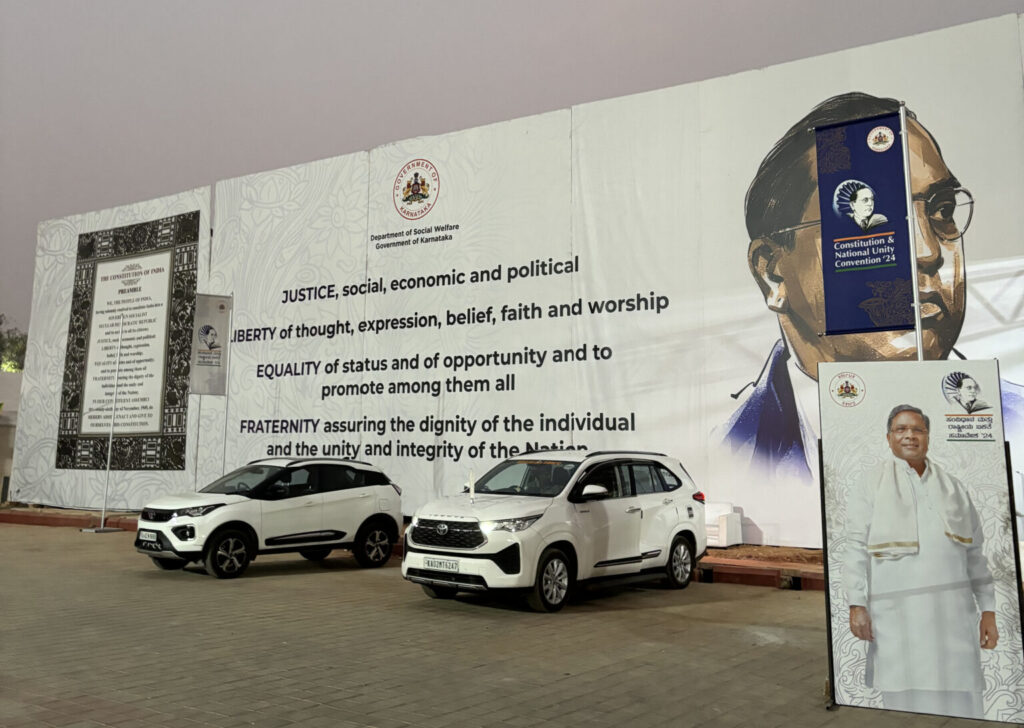This is Part 3 of a WNN exclusive series “Protecting Whistleblowers is Key to Protecting Democracy in India” reporting on efforts within India to incorporate different categories of whistleblowers within a whistleblower protection law that is on the horizon.
At the Constitutional and Unity Conference in Bangalore in February, participants in a closed-door session on whistleblowing emphasized the need to incorporate human rights defenders and journalists, among other groups, into whistleblower-organizing efforts and a comprehensive whistleblower protection law.
Human rights defenders and journalists often act as whistleblowers by conducting independent investigations or leading campaigns against the violation of fundamental rights. However, they take enormous risks in doing so.
Extrajudicial killings
If reports of the Indian government’s transnational extrajudicial assassinations and assassination attempts of activists in Canada, the United States, and Pakistan don’t provide enough clues to deduce the government’s treatment of activists within its borders, the U.S. State Department just released its 2023 Country Report on Human Rights Practices for India, which outlines the high rates of politically motivated killings and “arbitrary deprivation of life.” Out of 813 registered cases of extrajudicial killings between 2016 and 2022, only one conviction was made.
The need to defend this special class of whistleblowers is, therefore, greater than ever, partially because human rights defenders and journalists are at such high risk and partially because, as the background note for the session explained, they are “whistleblowers for fundamental rights, and therefore the Constitution.”
Salil Shetty, the former Secretary-General of Amnesty International, said that “the need for protection of those defending democracy and the Constitution of India has never been greater – morally, legally and politically.” He described the case of Gauri Lankesh, an independent journalist who was murdered in Bangalore in broad daylight, and the impunity that has followed as “a real wake- up call to all human rights defenders in India.”
Lankesh had been a fearless critic of Hindutva politics, a right-wing ideology championed by Prime Minister Narendra Modi. Throughout her career as a journalist, she had exposed the arbitrary use of power by both Congress and BJP leaders.
“Corruption and the arbitrary exercise of power is not just monetary, and the need for society to defend those who speak truth to power is essential for the defense of truth,” said Nikhil Dey, whistleblower activist who facilitated the session.
SLAPP Suits and Intimidation
Participants in the working group also identified the silencing of journalists and activists through “Strategic Legal Action against Public Participation (SLAPP)” suits as a major concern. These meritless lawsuits are intended to deter human rights defenders from speaking out by burdening them with high legal defense costs.
“The powerful and wealthy tried using SLAPP suits and the government machinery to file false cases against us,” said Jayaram Venkatesan, who co-founded Arappor, an organization with a vision for a just and equitable society. He and his colleagues had filed a complaint against a sitting Minister of Local Administration and his close aides in 2018. They responded by filing close to 18 defamation suits against Venkatesan and his colleagues. At least fourteen of the SLAPP suits sought ten million rupees as compensation for alleged defamation.
“The primary aim seemed to be to shut us down from seeking accountability,” explained Venkatesan. Today, 17 of the 18 defamation suits have either been dismissed by the courts or withdrawn by the plaintiffs as the cases approached trial.
SLAPP suits represent the consolidated effort by corrupt actors to waste activists’ financial resources and time. While Jayaram has successfully emerged from the sleuth of unfounded suits against him, SLAPP suits can be debilitating to human rights defenders and groups with limited resources.
Implications for a Whistleblowing Framework
A comprehensive whistleblowing framework in India needs to include journalists and human rights defenders in the definition of a “whistleblower” so that these groups can receive much-needed protections, including accountability for extrajudicial killings and a shield from frivolous and financially burdensome legal battles.
Nitin Sethi, an award-winning journalist and trustee at the Reporters’ Collective who has previously worked in editorial positions at The Hindu, The Times of India, and other media outlets, explained that a whistleblower law that extends beyond the conventional white-collar whistleblower and includes protections for human rights defenders and journalists is vital for defending of India’s democracy.
“At a time when it’s become extremely arduous and at times dangerous to hold the state and the private sector accountable to citizens, when the freedom of expression in general and the freedom of press in particular is sheared, laws that enable truth-telling would help Indian democracy regain its vitality,” said Sethi.
Check out the next article in this WNN Exclusive Series to read about further discussions during the whistleblowing workshop at the Constitution and Unity Conference and the other categories of whistleblowers who should be incorporated into this law.
